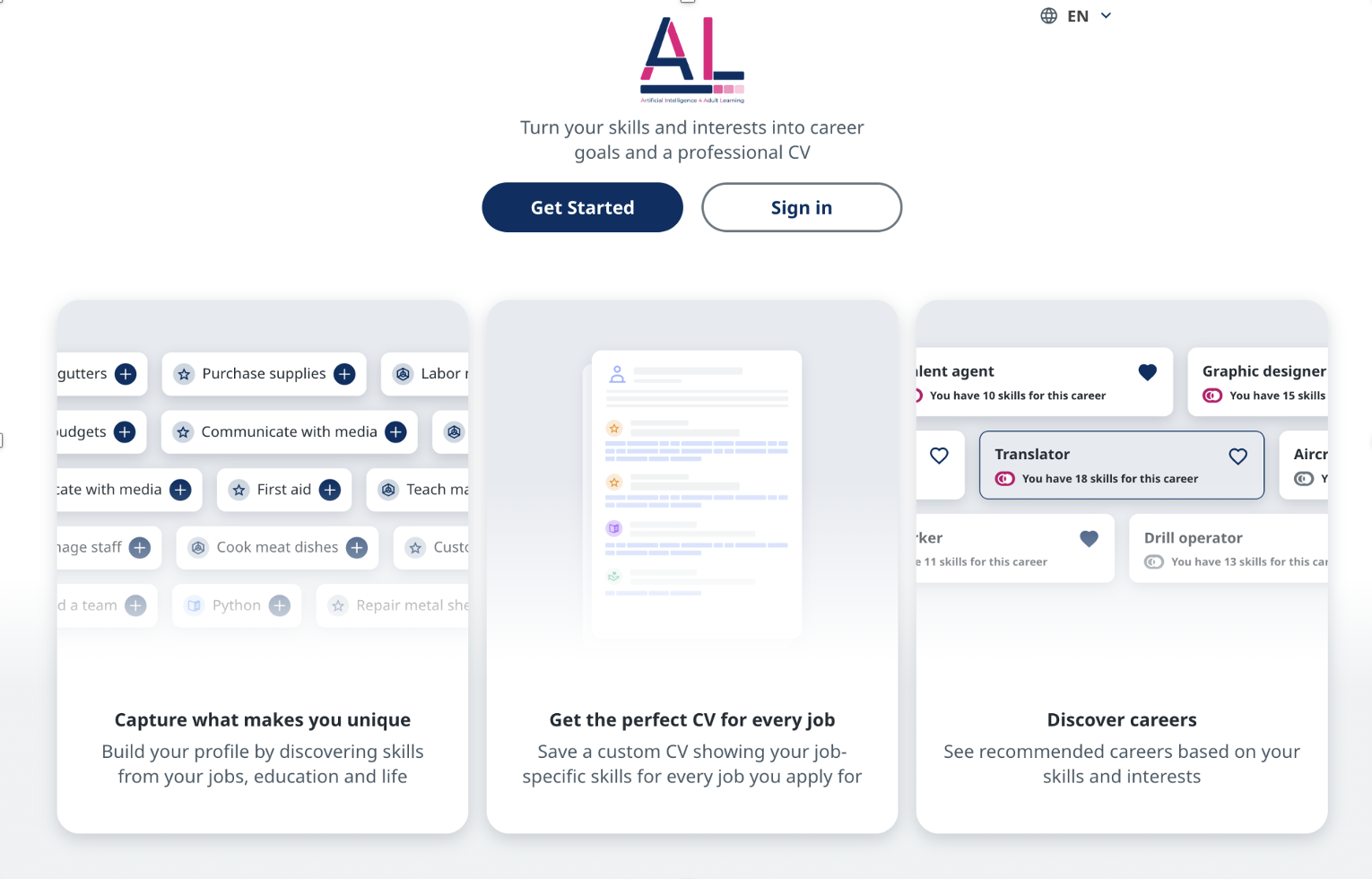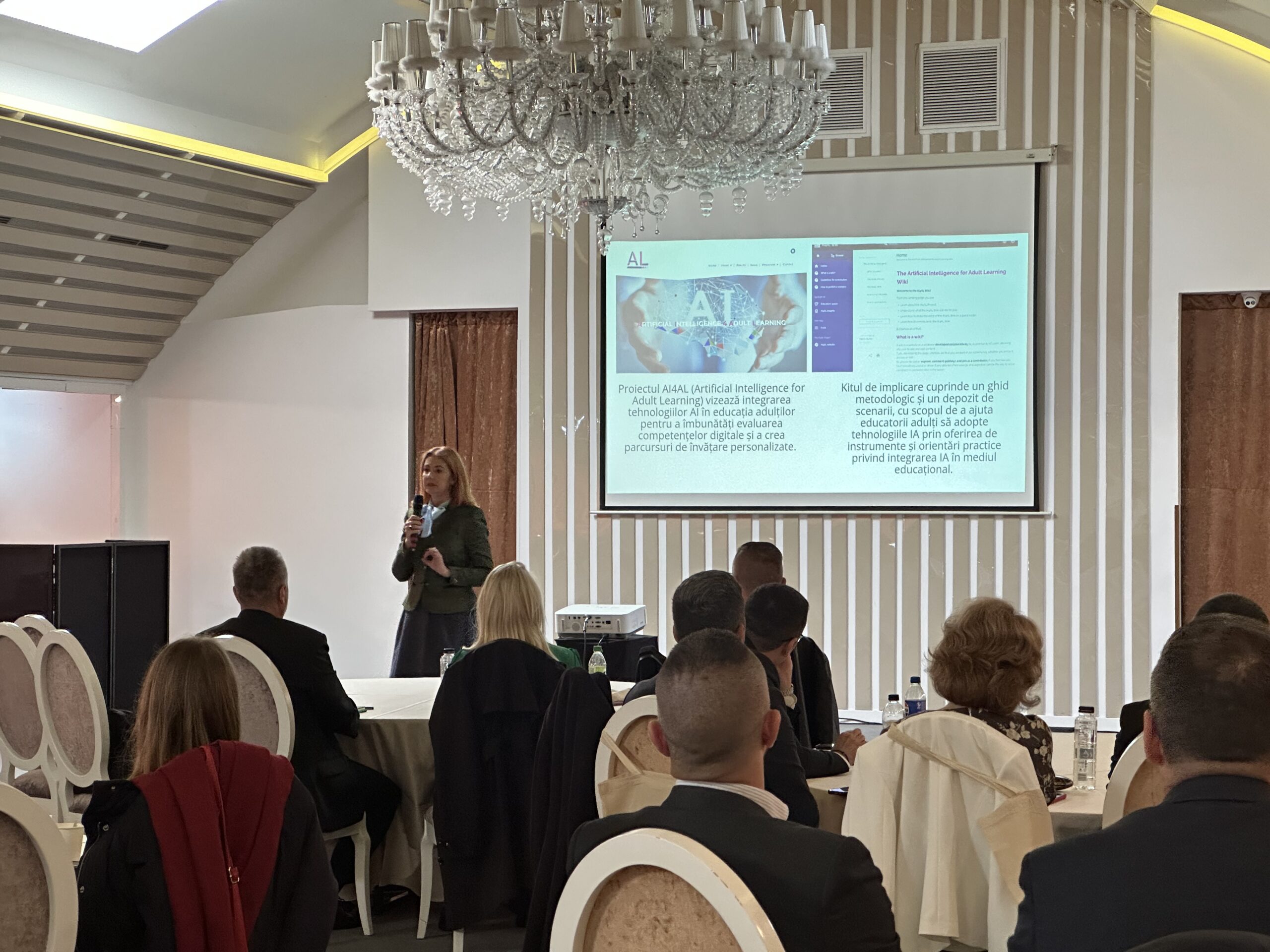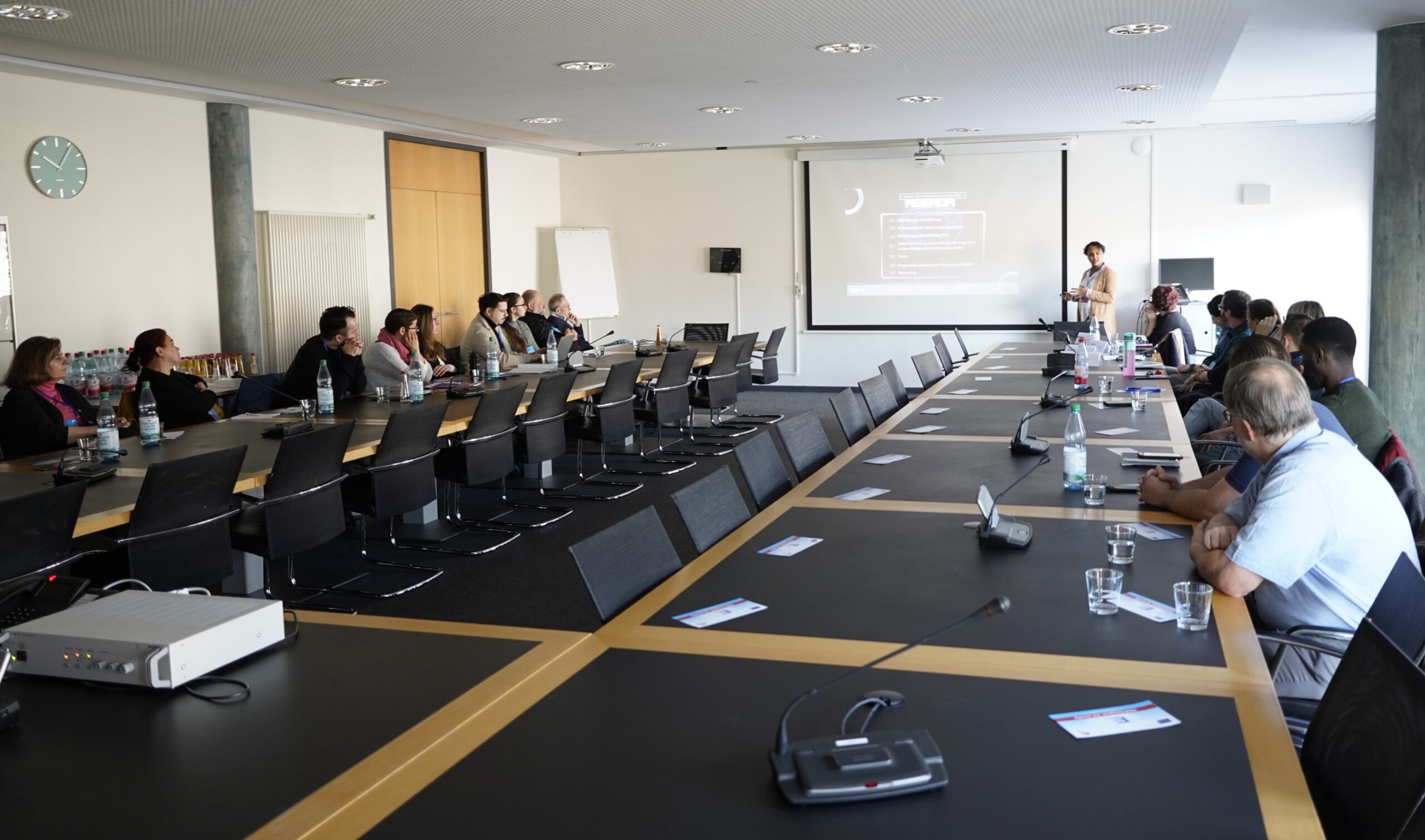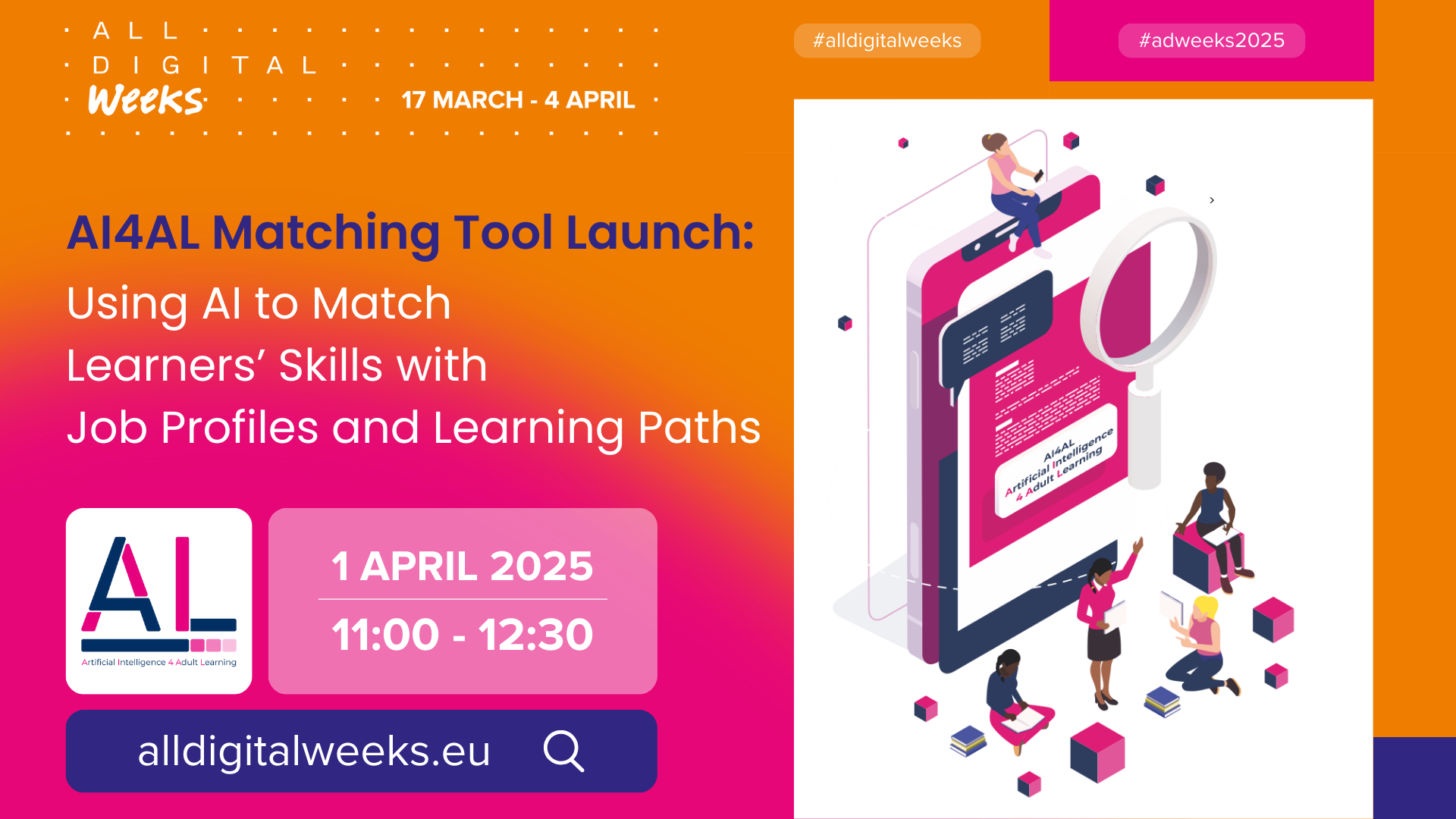About AI4AL
In a rapidly digitalizing world, the need for basic digital skills has never been more crucial. Recognizing this, the AI4AL project aims to revolutionize adult education by leveraging AI to bridge skill gaps and enhance learning outcomes. Our project’s overall goal is to facilitate a mindful adoption of AI technologies in the Adult Learning and Education (ALE) sector.
The AI4AL project is committed to equipping educators and professionals with the necessary knowledge and skills to effectively incorporate AI into their teaching methodologies. This is achieved through a series of strategic initiatives and resources aimed at fostering a deeper understanding of AI and its applications in education. The project is a collaborative effort involving multiple partners across Europe, each bringing unique expertise to the table.
Key Objectives
The AI4AL project partners work together to:
- Develop a methodology and resources: Create a comprehensive engagement kit, including a methodological guide and a repository of use cases, to assist adult educators in integrating AI technologies into their teaching practices.
- The AI4AL Matching Tool: Develop an AI and skills-based digital tool to support adult educators in their daily work and to match adult learners with the best learning opportunities.
- A self-paced training path: A training toolkit for adult educators
Core Components of the AI4AL Matching Tool:
The AI4AL Matching Tool consists of the following components:
- User App: A mobile application designed for learners to assess their skills, explore career paths, and download personalized CVs.
- Administrator Portal: A comprehensive portal for educators to manage user profiles, create groups, monitor progress, and use the generated skills profiles to create personalized recommendations and learning paths.
- Career Pathways: It helps learners explore potential career paths that match their skills and interests, guiding them towards fulfilling employment opportunities.
- Educator Training: Train 150 adult educators to use the AI4AL tools and methodologies.
The project is structured into several phases. One of those, the Beta Testing or pilot phase, is about “launching and testing the beta version with extensive user feedback and training sessions” in order to improve the Matching Tool.
The development of the tool started in February 2023 under the lead of project partner SkillLab. The raw version was tested by 10 adult educators from various EU countries in the first Training of Trainers in Amsterdam last year. This is the so called «beta tutor group».
The Case of Switzerland
As a project partner, Swiss Federation for Adult Learning (SVEB/FSEA) participated in this initial training representing adult educators in Switzerland. Based on the resulting feedback from the «beta tutor group» and feedback gathered from additional adult educators, the tool was further developed to the beta version, which is currently being used in the beta testing.
End of last year, a call for tutors was published in all project partner countries. Its aim was to recruit at least 100 adult educators who were interested in testing the matching tool and other tools developed by the project, as well as playing a vital role in demystifying the perceived threats posed by AI and highlighting the key role of teachers and educators in the adoption of assistive technologies.
In Switzerland, SVEB/FSEA managed to enroll 20 adult educators with various backgrounds. Some are trainers looking for practical tools they can easily integrate into their lessons, others are adult educators developing educational programs for their institutions or offering consulting services as adult education specialists. The prior knowledge and experience with AI tools varies grately among the participating educators, as well as the field they work in. Therefore, they address different target groups among participants and might have different use cases for the Matching Tool, which is all considered valuable since we can expect to receive diverse feedback due to various prerequisites and perspectives.
For the beta testing in Switzerland, Melanie Schneider took the lead in providing information and assisting the educators in familiarizing themselves with the tool. Melanie works part-time for SVEB/FSEA in the area of professionalization and quality and also teaches German as second language to adults. In her role as beta tutor she held three webinars from 19th to 24th April 2024 providing essential information about the tool and made sure all testing educators had access to the admin portal and user app. She introduced the main features of the tool and provided the different user guides SkillLab had created for assistance. She also clarified questions and concerns that came up during the tool introduction sessions.
Objectives of Beta-testing
- Identify and Resolve Issues: Gather user feedback to identify any technical or usability issues that need to be addressed before the final launch planned for September 2024.
- Enhance User Experience: Improve the user interface and experience based on real-world usage and feedback.
- Validate AI Models: Ensure the accuracy and relevance of the AI-driven recommendations and assessments.
- Create use cases: Feedback from educators shall be included in the scenario repository to showcase the use of AI based tools with different learners.
Expected Outcomes
- Improved Tool Functionality: Refinement of the Matching Tool’s features to better meet the needs of educators and learners.
- Enhanced Training Pathways: More precise and personalized training recommendations that align closely with individual learner needs.
- User-Centric Design: A more intuitive and user-friendly interface, making it easier for users to navigate and utilize the tool effectively.
Feedback during the introduction sessions:
- Matching Tool looks interesting and quite intuitive
- The tool could be very useful for educators who work in the field of job placement, career counseling, and public authorities funding programs for the integration of migrants and job seekers with low basic skills
- Questions came up regarding the storage of data entered into the tool and data privacy
- Users being able to create and customize their CV is viewed as great benefit
- The skills profile creation through the tool might increase the educator’s efficiency in assessing educational needs and recommending personalized learning paths
- educators can’t see the tool being used in the classroom. It’s viewed as a tool for consulting.
Two slightly different feedback forms have been created, one for the educators and one for their learners who have been invited to test the user app. The Matching Tool testing is currently ongoing, and first comprehensive feedbacks are expected to be available by end of this month.
Conclusion
The beta-testing phase of the AI4AL Matching Tool is a pivotal step towards its successful implementation. By involving educators and learners in the testing process, AI4AL ensures that the final product is both effective and user-friendly. This phase not only helps in perfecting the tool but also empowers participants by providing them with early access to an innovative solution that can significantly enhance their digital skills and career prospects.







